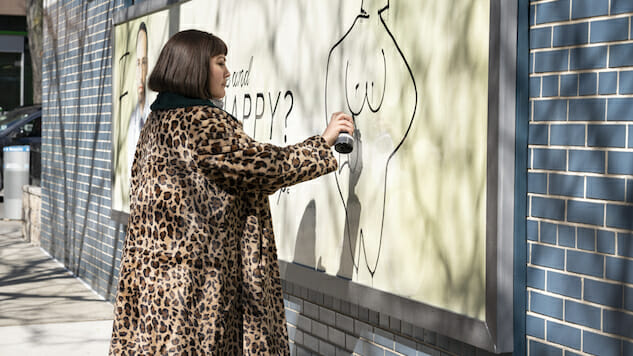Why AMC Is the TV Network of the Year
Photo: Patrick Harbron/AMC
“We must spread our principles, not with words but with deeds, for this is the most popular, the most potent, and the most irresistible form of propaganda.” —Mikhail Bakunin, “Letters to a Frenchman on the Present Crisis” (1870)
It’s the moment he becomes Saul Goodman that closes the episode, but the key sequence in “Winner” is the one that shows why. Midway through the Season Four finale of Better Call Saul, Jimmy McGill (Bob Odenkirk) joins his former colleagues at the Albuquerque law firm of Hamlin, Hamlin & McGill to name the recipient of a scholarship begun in his late brother’s honor. First, in a cunning montage, haughty lead partner Howard Hamlin (Patrick Fabian) introduces the finalists by reciting their résumés—Model U.N., debate team, school government—only for the applicants’ voices to be left, unheard, on the cutting room floor. Then, after Jimmy’s preferred candidate, Christy Esposito (Abby Quinn), loses out on the first ballot (“that’s the shoplifter,” one board member sniffs), he pleads with his fellow voters to reconsider. Finally, he catches up with Christy in the parking lot, on the way to catch her bus. “You didn’t get it,” he says, her hopeful face falling, as he launches into the season’s—and perhaps the series’—defining monologue. “You were never gonna get it”:
They dangle these things in front of you, they tell you you’ve got a chance, but—I’m sorry, it’s a lie. Because they had already made up their mind, and they knew what they were gonna do before you walked in the door. You made a mistake, and they are never forgetting it. As far as they’re concerned, your mistake, that’s who you are, and it’s all you are. And I’m not just talking about the scholarship here. I’m talking about everything. I mean, they’ll smile at you. They’ll pat you on the head. But they are never, ever letting you in. But listen, it doesn’t matter, because you don’t need them. They’re not gonna give it to you. So what? You’re gonna take it. You’re gonna do whatever it takes, do you hear me? You are not gonna play by the rules. You’re gonna go your own way. You’re gonna do what they won’t do. You’re gonna be smart. You are gonna cut corners. And you’re gonna win.
-

-

-

-

-

-

-

-

-

-

-

-

-

-

-

-

-

-

-

-

-

-

-

-

-

-

-

-

-

-

-

-

-

-

-

-

-

-

-

-








































